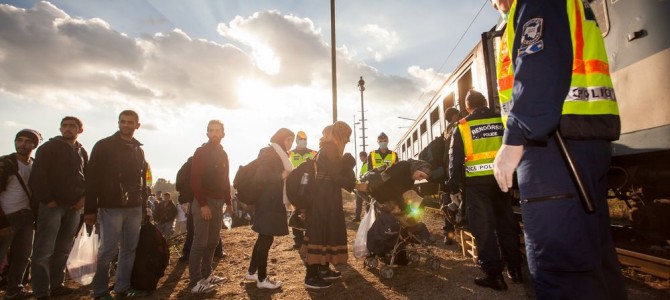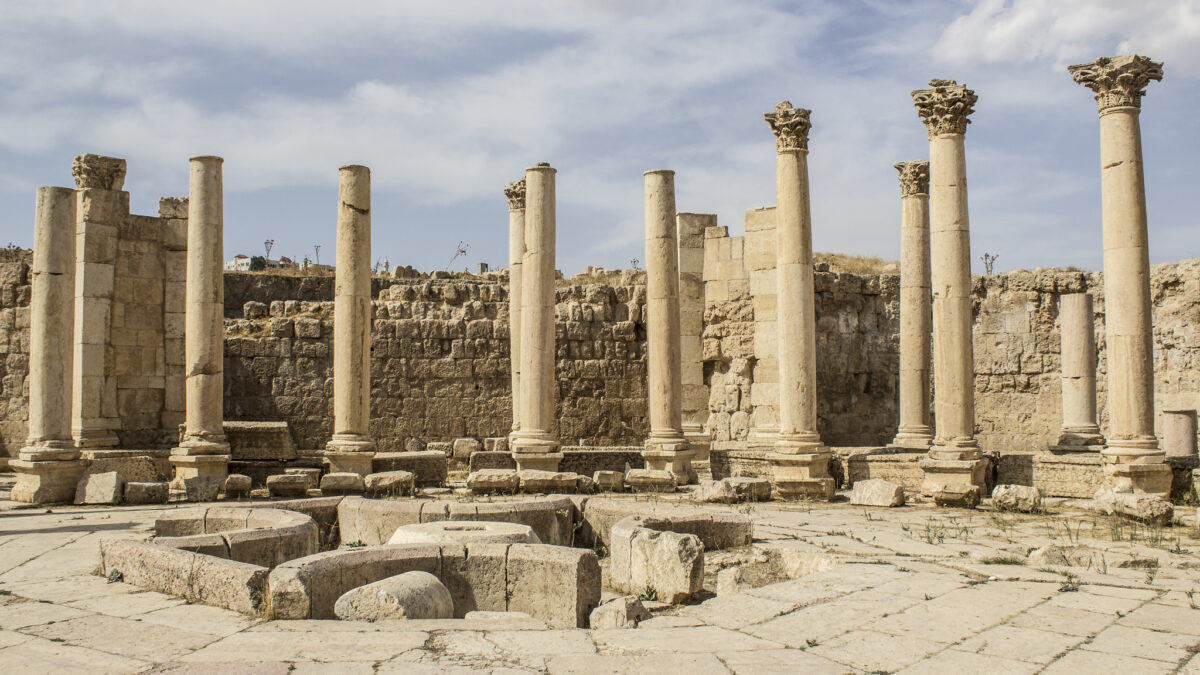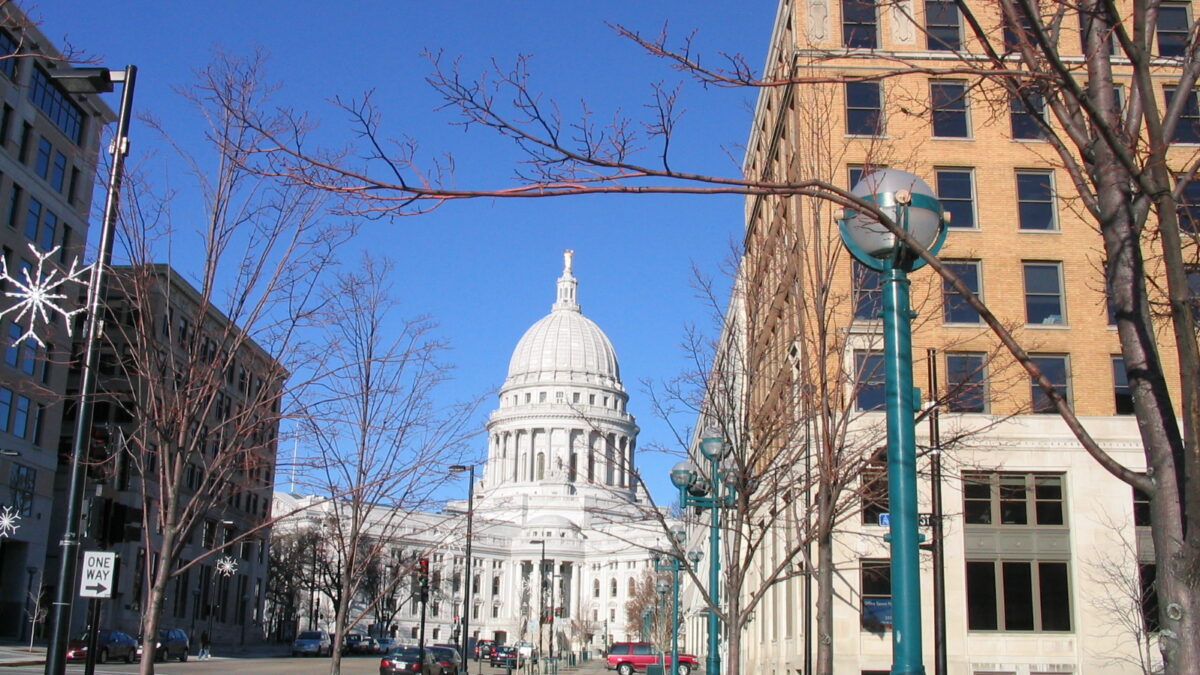
Last week, the Ninth U.S Circuit Court of Appeals upheld a lower court decision to halt President Trump’s controversial executive order on immigration. The decision, which many have pointed out as legally precarious, follows weeks of protests, celebrity calls for action (see Tribe Called Quest’s call to “resist” at the Grammys on Sunday), and endless stories of families detained or turned away at airports.
Many Americans have expressed deep distress over an order they feel goes against the shared values of a country made up of immigrants. But as Trump considers fighting the courts or drafting another executive order, it’s important to remember that there’s another America out there that views things very differently from the so-called mainstream. And they aren’t racists or radicals. They are our friends, our family members, our co-workers.
Last week’s Morning Consult/Politico survey found that 55 percent of registered voters support Trump’s temporary ban on refugees from the seven Muslim-majority countries listed in the executive order. This confirms the results of two other polls by IPSOS/Reuters and Rasmussen. Approval for the order isn’t a minority opinion, and it isn’t fringe.
Let’s Get Inside This America’s Head
Yet this level of support has been difficult for many to understand. To those who oppose it, the order is just a thinly veiled attack on Muslims, supported by what they perceive as a largely bigoted Trump constituency. They also see the number of terrorist attacks in the West as vanishingly small and undeserving of such a drastic and divisive move. As former President Obama once pointed out, more people die from slipping in the tub than at the hands of terrorists.
But Americans who support the executive order see a very different landscape when they look at the country. They read about the ISIS-inspired attacks both at home and in Europe and are afraid that their city or town could be next. Terrorists attack us in our malls, nightclubs, and places of business. They target the ordinary to spread fear—and it works. Also, while the number of attacks might not be very high, as I pointed out last week it’s not the quantity that frightens people, it’s the intention of the attackers.
Trump’s America worries that we have become so obsessed with political correctness we can’t see the danger that’s right in front of us. They hear 9/11 mastermind Khalid Sheikh Mohammed tell interrogators that terrorists take advantage of America’s political correctness—and they worry that he’s right.
Thanks to political correctness, it has become increasingly unacceptable to talk about the manifest connections between fundamentalist strains of Islam and violent jihad. Such a climate leaves ordinary Americans scared and feeling helpless. They believe our leaders are unable or unwilling to do anything about it.
This is the case for many conservatives. Ever since 9/11, they’ve been protesting the rise of political correctness at the cost of security. By the time the election came around, they felt like there was nowhere to turn but to a fundamentally politically incorrect man who would take action. Now that Trump is president, they are fine imposing temporary restrictions on immigration while we figure out better vetting procedures.
Seeking Safety Isn’t Racist
On the other end of the spectrum, a close friend of mine with generally liberal social views surprised me over the holidays when she told me that, more and more, she thinks a temporary immigration ban doesn’t seem so crazy. This woman, a lawyer and no Trump supporter, said a ban just seems like it makes sense.
These Americans, whether part of Trump’s base or centrists who just want their family to be safe, aren’t racist or Islamophobic. They are just people who want a practical, common-sense solution to terrorism, and they believe that’s what Trump’s proposal is. Does this mean Trump’s base is free of racism or bigotry? Of course not. But that does not define 55 percent of the country.
These voters don’t agree that Trump’s order is a Muslim ban. They note, correctly, that the order doesn’t require a religious test or include all Muslim-majority countries—not even close. No wonder: there has never been broad support for such a radical step.
In fact, many who support the order would gladly welcome refugees. But they want some guarantees that those coming to our country won’t take advantage of American generosity. They look at Europe’s migrant crisis, see the chaos and inability to vet refugees properly, and think to themselves that they don’t want those same troubles here.
They’ve Got Some Points
Considering the state of the Middle East right now, it’s understandable that a lot of Americans aren’t feeling all that reassured. Six of the seven countries listed—Syria, Iraq, Libya, Sudan, Somalia, and Yemen—are failed or semi-failed states. They are all highly unstable, and some are run by competing governments and warlords. All are home to significant terrorist activity.
Yemen is embroiled in a civil war, while al-Qaeda has a foothold in the southeast. After Libya’s Muammar Gaddafi was deposed and killed in 2011, the country fell into chaos. Iran, which actively supports terrorism throughout the Middle East, is the only stable country on the list.
How well are we really able to screen people coming from these war-torn countries? That’s what some of my friends on Facebook want to know. It’s not hard to see why they think more scrutiny of immigrants from this part of the world is necessary.
Trump’s executive order was ambiguously written and rolled out with spectacular incompetence. It also neglected to target hotbeds of terrorist activity like Pakistan, or supposed allies like Saudi Arabia, making it only semi-effective at best. But public support for the order is neither racist nor absurd. It’s rooted in valid fears and a belief that our government’s number one priority is to provide security for the people of the United States.
There are two legitimate viewpoints on Trump’s executive order that reflect two increasingly different Americas. Each should strive to understand the other—even if they disagree.








